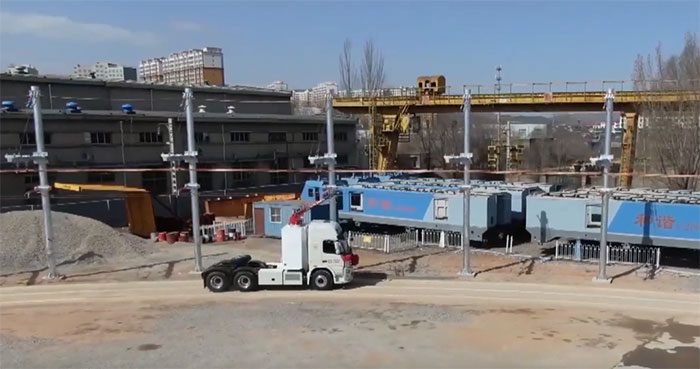China Plans to Electrify Road Transport with Smart Vehicles to Reduce Carbon Emissions.
A test vehicle was reported by Xinhua on March 16, running in the city of Dai Dong, Shanxi Province. The truck is powered by batteries or by connecting to the power grid through overhead wires. The main advantage of this vehicle is its ability to charge while in motion, enhancing efficiency and sustainability. Additionally, it features regenerative braking, meaning that electricity generated from braking can be fed back into the system.
Smart electric truck testing on a route in Shanxi, China. (Video: Xinhua).
According to Liu Peng from the research department of CRRC, these intelligent heavy-duty trucks can be utilized for long-distance transport, at seaports, and even in coal mining operations. In the future, these vehicles are also expected to feature autonomous driving capabilities.
The International Energy Agency (IEA) reports that transportation accounts for 26% of global carbon emissions. In China, the total volume of road, rail, and waterway freight transport in 2022 reached 37.12 billion, 3.9 billion, and 7.616 billion tons, respectively. These figures represent 76.3%, 8.0%, and 15.69% of the total freight transport volume in the country.

Electric truck is twice as energy-efficient as diesel vehicles.
To reduce carbon emissions, China is focusing its efforts on road freight transport. The IEA has suggested that road electrification will be a key trend in the future, predicting that by 2050, 36% of heavy-duty trucks will run on electricity.
Based on experiments, electric trucks are twice as energy-efficient as diesel vehicles. Although trucks make up only 3% of the total number of motor vehicles worldwide, they contribute significantly to emissions, including carbon monoxide, carbon dioxide, hydrocarbons, and nitrogen oxides.




















































